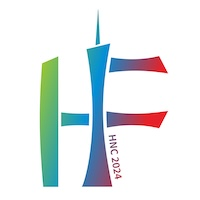Speaker
Description
Understanding heavy quarkonium production in hadronic collisions has attracted much interest and remains an exciting challenge in QCD studies. QCD factorization is a powerful approach for studying hadronic heavy quarkonium production at high transverse momentum ($p_T$) by implementing heavy quarkonium fragmentation functions (FFs). These FFs contain rich information on how a physical quarkonium bound state emerges from partons produced at short distances in high-energy scatterings. The scale evolution of quarkonium FFs is capable of resumming logarithmically enhanced corrections to the hadronic quarkonium production cross-section. Within the QCD factorization formalism, incorporating both leading-power and next-to-leading-power contributions at short distances in $1/p_T$ with the evolved quarkonium FFs allows for a description of the $p_T$ spectrum of hadronic quarkonium production over a broad range of $p_T$.
This talk will present that the QCD factorization approach at leading power in $1/p_T$ with single-parton FFs describes recent LHC data on the prompt $J/\psi$ production cross section in pp collisions at high $p_T$ even larger than 100GeV. In contrast, the next-to-leading-power contributions with double-parton FFs are essential for describing the $J/\psi$ $p_T$ spectrum at low $p_T$, where the QCD factorization should be matched to NRQCD fixed-order calculations. We will also remark quarkonium’s polarization in hadronic collisions.
